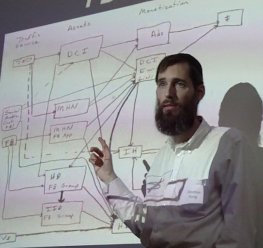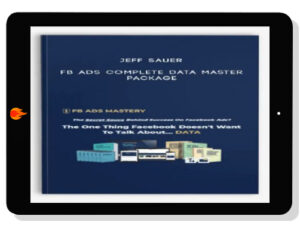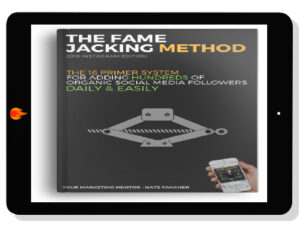After taking this course, you’ll Know how to use psychological tactics to optimize user journeys and page design. Be able to apply digital psychology for more effective, conversion-focused design. Have templates, processes and tactics grounded in science that’ll get you more conversions.
ConversionXL (Brian Cugelman & Michael Aagaard) – Psychology and Neuroscience for CRO
Understand what motivates your customers to convert
Learn how to use psychology and neuroscience to create better conversion experiences.
Dr. Brian Cugelman, and Michael Aagaard will teach you core lessons in digital psychology and show you how to apply them for true and lasting results on any conversion project.
After taking this course, you’ll…
Know how to use psychological tactics to optimize user journeys and page design
Be able to apply digital psychology for more effective, conversion-focused design
Have templates, processes and tactics grounded in science that’ll get you more conversions.
Understand neurochemicals and how they affect behaviour (so you can tap into them).
Understanding human motivation is key to the success of any CRO project.
Psychology and neuroscience are at play with every conversion experience. Do you know why some customers convert and others don’t? Can you look at your landing page or website design right now and point out what’s helping persuade visitors and what’s turning them away?
If your answer is “no” to either of these questions, then this course is for you. Learn how to truly understand your customers for better results and more conversions.
This course is right for you if…
You are curious to learn more about human behaviour and what drives motivation.
You want to better understand the connection between design conventions and underlying psychological strategies.
You want to take your optimization efforts and results to the next level.
This course is probably not for you if…
You want “5 magical psychology hacks guaranteed to increase conversion!”
You believe that building an ethical foundation of trust with your customer isn’t important.
You think that psychology and neuroscience aren’t that important in CRO.
Designed for anyone with basic knowledge of conversion optimization.
This course is perfect for anyone who has a basic understanding of conversion optimization, UX and design as well as an interest in psychology and neuroscience.
Students should have previously worked on a CRO project or campaign before taking this course.
About your instructors
Brian Cugelman, PhD, Senior Scientist with AlterSpark
Since 1997, Brian has built an extensive career in social mobilization, digital engagement, and program evaluation. Brian obtained his PhD in Online Social Marketing with the Statistical Cybermetrics Research Group, a world-leading Internet research team. He obtained his Masters in Business and Computers.
He is published in JMIR, the world’s top e-health journal. The United Nations General Assembly has recognized the impact of his digital campaigning work. He has been invited to act as an expert advisor for the World Anti-Doping Agency, the Heart and Stroke Foundation, the annual International Conference on Persuasive Technology, and the Pentagon.
Brian’s training on digital psychology, has attracted experts from Salesforce, Samsung, PayPal, Microsoft, LinkedIn, Apple, Uber, numerous governments, banks, military, and non-profit organizations.
Michael Aagaard, Senior Conversion Optimizer, International Keynote Speaker & Speaker Coach
Michael Aagaard has been a full-time CRO since 2008 and has helped companies all over the world improve their online businesses. He has worked with everything from SaaS to non-profit and has experience as an external consultant and as an in-house conversion optimizer.
Michael’s approach to CRO revolves around user research and consumer psychology. He is a sought-after international keynote speaker and is generally known as one of the most passionate and enthusiastic people in the industry.
Your full course curriculum
Psychology and neuroscience for CRO
Lesson 1
Introduction
On day one we’ll kick off the session with an overview of the full course. We’ll cover the essential concepts in what it means to apply psychology to interactive design and marketing. We’ll go over key scientific models, design processes, and tools to help you see how the entire course is structured. We’ll also introduce one of the most interesting discoveries in the science of consumer-brand relations.
Lesson 2
Psychological design toolkit
In the second lesson, we’ll walk you through the“Psychological Design Toolkit” and show you the psychology behind common design elements like CTAs, value props, hero images and testimonials. This class will transform your perspective on the impact and risks associated with each element and change the way you look at design.
Lesson 3
Human/computer relationships and trust
Trust is at the core of all influence. Without it, there’s not much to build on. Trust doesn’t motivate, rather it stops behavior dead in its tracks. In this lesson, you’ll learn how to build authentic and trusting relationships with the people that matter to your business. This will help you win trust early on and retain long-term loyalty. You’ll learn how users form trust, how companies lose it and what to do if you suspect you have a trust issue.
Lesson 4
Cognitive psychology
When it comes to winning conversions, you need to win your customers’ minds before you can win their hearts. In other words, if users can’t understand what you’re offering, it won’t motivate them. In this module, you’ll learn how to design intuitive content that works effectively within the limits of human memory systems and cognitive processing.
Lesson 5
Emotional design psychology
Emotion and motivation are basically the same thing in the sense that our emotions drive our behavior. In class four, you’ll learn the Emotion-Behavior model and get an overview of the main neurochemicals associated with human behavior. You’ll learn broad strategies for an emotional design that include pressure tactics, incentives, retention and the risk of triggering negative user emotions.
Lesson 6
Processes and tools for psychology-inspired design
Building on all the prior lessons, our fifth class will give you tools and processes for designing impactful conversion experiences based on psychology and neuroscience. You’ll work with standard industry tools as well as a set of special tools developed by Michael and Brian. Among other things, you’ll learn Michael’s step-by-step process for building impactful information hierarchies and Brian’s process for complex conversion process modeling. In addition to this, you’ll learn how to use psychology to inform your creative process and overall approach.
Lesson 7
Psychological design audit
Psychological design audits are very helpful in connection with launching new products, fixing underperforming pages or conducting competitive analysis. In this class, you’ll learn how to audit entire conversion processes as well as individual elements. This will help you pinpoint key psychological design success factors, backfire risks and new opportunities.
Lesson 8
Design clinic and practical hacks
For the final class, we’ll start with discussing essential tools for psychological conversion design and practical hacks that Michael and Brian use in their everyday work. We’ll also invite you to use this opportunity to ask us any follow-up questions you might have.
Read more: http://archive.is/DWXjL







